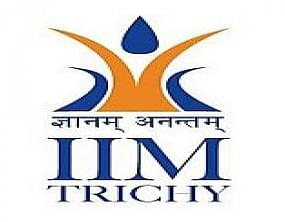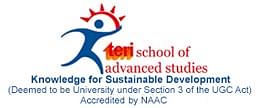Introduction about BA Hons Psychology
A Bachelor of Arts (BA) Honours in Psychology from the top best college in India is an undergraduate degree program designed to provide
students with a comprehensive understanding of human behaviour, cognition,
emotions, and mental processes. It integrates theoretical knowledge with
practical skills, preparing students for various careers in psychology and
related fields or for further academic study at the graduate level.
The BA Hons Psychology program typically covers a wide range of topics
across different areas of psychology, including:
Ø Foundations of
Psychology: Introduction to the history, theories, and key concepts in psychology,
providing a solid grounding in the discipline.
Ø Biological
Psychology: Study of the biological bases of behavior, exploring topics such as
brain structure and function, genetics, and the physiological mechanisms
underlying behavior and mental processes.
Ø Cognitive
Psychology: Examination of cognitive processes such as perception, memory,
attention, language, problem-solving, and decision-making, as well as cognitive
development across the lifespan.
Ø Developmental
Psychology: Understanding human development from infancy through adulthood,
including physical, cognitive, emotional, and social development, and the
factors that influence development.
Ø Social Psychology:
Exploration of how individuals think, feel, and behave in social contexts,
including topics such as social influence, group dynamics, interpersonal
relationships, and prejudice.
Ø Abnormal Psychology: Study of
psychological disorders, their causes, symptoms, diagnosis, and treatment
approaches, as well as the stigma associated with mental illness.
Ø Research Methods
and Statistics: Training in research methodology, experimental design, data
collection, statistical analysis, and interpretation of research findings,
essential for conducting and evaluating psychological research.
Ø Applied Psychology:
Application of psychological principles and theories to real-world settings,
including clinical psychology, counseling, health psychology, forensic
psychology, organizational psychology, and educational psychology.
Throughout the program, students typically engage in a combination of
lectures, seminars, laboratory exercises, and independent study projects to
develop critical thinking skills, research proficiency, and communication
abilities. They may also have opportunities for internships, field placements,
or research assistantships to gain practical experience in the field of
psychology.
Upon completion of the BA Hons Psychology program, graduates are
equipped with a solid foundation in psychology and are prepared for various
career paths, including roles in mental health services, social services,
education, human resources, research, and advocacy. Additionally, the degree
provides a strong basis for further study at the graduate level, leading to
careers in clinical psychology, counseling psychology, academic research, or
specialized fields within psychology.
How can I apply for admission to BA Hons
Psychology?
Applying for admission to the best Bachelor of Arts (BA) Honours in Psychology college program typically involves several steps. Here's a general
overview of the application process:
o Research Programs: Begin by
researching universities and colleges that offer BA Hons Psychology programs.
Look for programs that align with your academic interests, career goals, and
geographic preferences. Consider factors such as program curriculum, faculty
expertise, research opportunities, and campus culture.
o Review Admission
Requirements: Each program will have specific admission requirements, which may vary
between institutions. Common requirements may include:
o High
school diploma or equivalent qualification.
o Minimum
GPA (Grade Point Average) or academic achievement criteria. This may vary
depending on the institution and program.
o Completion
of prerequisite coursework, which may include specific subjects such as
mathematics, science, or social science.
o Standardized
test scores, such as the SAT or ACT, if required by the institution.
o English
language proficiency test scores for international students, such as the TOEFL
or IELTS.
o Prepare Application
Materials: Gather all required application materials, ensuring that you meet all
formatting and submission requirements. Common application materials may
include:
o Completed
application form: Fill out the application form provided by the university or
college.
o High
school transcripts: Request official transcripts from your high school or
secondary school.
o Letters of
recommendation: Some programs may require letters of recommendation from
teachers, counselors, or other individuals who can attest to your academic
abilities and character.
o Personal
statement or essay: Write a personal statement or essay outlining your academic
interests, motivation for studying psychology, and career aspirations.
o Resume or
curriculum vitae (CV): Provide a resume or CV listing your academic
achievements, extracurricular activities, volunteer work, and relevant
experiences.
o Any
additional supplemental materials required by the institution or program.
o Submit Applications: Complete
and submit the application form along with all required application materials
by the specified deadlines. Pay attention to application deadlines, as they may
vary between institutions and programs. Some universities may have early
decision or early action deadlines, while others have regular decision
deadlines.
o Pay Application
Fees: Some universities may require an application fee to process your
application. Be sure to pay any required application fees by the specified
deadlines, and inquire about fee waivers if you qualify.
o Track Application
Status: Monitor the status of your application through the university's
application portal or admissions office. Follow up with the admissions office
if you have any questions or concerns about your application.
o Admission Decision: After
reviewing your application, the admissions committee will notify you of their
admission decision. This notification may come via email, postal mail, or
through an online application portal. If you are offered admission, carefully
review the offer letter and any accompanying materials for instructions on next
steps, such as accepting the offer and enrolling in classes.
o Financial Aid and
Scholarships: Explore opportunities for financial aid, scholarships, grants, and
student loans to help finance your education. Contact the university's
financial aid office for information on available options and application
procedures.
o Accept Admission
Offer and Enroll: Once you receive an admission offer, carefully
review the terms and conditions of the offer. If you decide to accept the
offer, follow the instructions provided to confirm your enrollment and complete
any additional enrollment steps required by the university.
Remember to carefully follow the instructions provided by each
institution and to submit all application materials by the specified deadlines.
Additionally, don't hesitate to reach out to the admissions office or program
coordinator if you have any questions or need assistance with the application
process.
What is admission process for BA Hons Psychology?
The admission process for a Bachelor of Arts (BA) Honours in Psychology
program typically involves several steps. Here's a general overview of the
admission process:
·
Research Programs: Begin by researching
universities or colleges that offer BA Hons Psychology programs. Consider
factors such as program reputation, faculty expertise, research opportunities,
location, and campus culture. Identify programs that align with your academic interests
and career goals.
·
Review Admission Requirements: Each
program will have specific admission requirements, which may vary between
institutions. Common requirements for BA Hons Psychology programs may include:
·
High school diploma or equivalent qualification.
·
Minimum GPA (Grade Point Average) or academic
achievement criteria. This may vary depending on the institution and program.
·
Completion of prerequisite coursework, which may
include specific subjects such as mathematics, science, or social science.
·
Standardized test scores, such as the SAT or ACT,
if required by the institution.
·
English language proficiency test scores for
international students, such as the TOEFL or IELTS.
·
Prepare Application Materials: Gather
all required application materials, ensuring that you meet all formatting and
submission requirements. Common application materials may include:
·
Completed application form: Fill out the
application form provided by the university or college.
·
High school transcripts: Request official
transcripts from your high school or secondary school.
·
Letters of recommendation: Some programs may
require letters of recommendation from teachers, counselors, or other
individuals who can attest to your academic abilities and character.
·
Personal statement or essay: Write a personal
statement or essay outlining your academic interests, motivation for studying
psychology, and career aspirations.
·
Resume or curriculum vitae (CV): Provide a resume
or CV listing your academic achievements, extracurricular activities, volunteer
work, and relevant experiences.
·
Any additional supplemental materials required by
the institution or program.
·
Submit Applications: Complete and submit the
application form along with all required application materials by the specified
deadlines. Pay attention to application deadlines, as they may vary between
institutions and programs. Some universities may have early decision or early
action deadlines, while others have regular decision deadlines.
·
Pay Application Fees: Some universities may
require an application fee to process your application. Be sure to pay any
required application fees by the specified deadlines, and inquire about fee
waivers if you qualify.
·
Track Application Status: Monitor
the status of your application through the university's application portal or
admissions office. Follow up with the admissions office if you have any
questions or concerns about your application.
·
Admission Decision: After reviewing your
application, the admissions committee will notify you of their admission
decision. This notification may come via email, postal mail, or through an
online application portal. If you are offered admission, carefully review the
offer letter and any accompanying materials for instructions on next steps,
such as accepting the offer and enrolling in classes.
·
Financial Aid and Scholarships: Explore
opportunities for financial aid, scholarships, grants, and student loans to
help finance your education. Contact the university's financial aid office for
information on available options and application procedures.
·
Accept Admission Offer and Enroll: Once you
receive an admission offer, carefully review the terms and conditions of the
offer. If you decide to accept the offer, follow the instructions provided to
confirm your enrollment and complete any additional enrollment steps required
by the university.
What is eligibility for admission at BA Hons Psychology?
The eligibility criteria for admission to the best affordable Bachelor Arts (BA) Honours university in Psychology program can vary depending on the
university or college offering the program. However, here are some common
eligibility requirements that applicants typically need to meet:
·
Educational Background:
·
High School Diploma: Applicants are usually
required to have completed their secondary education and obtained a high school
diploma or an equivalent qualification.
·
Prerequisite Courses: Some programs may require
applicants to have completed specific high school courses as prerequisites for
admission. These courses may include mathematics, science, social science, or
language arts.
·
Minimum GPA: Many programs have a minimum
Grade Point Average (GPA) requirement for admission. This GPA requirement may
vary depending on the institution and program but typically falls within the
range of 2.5 to 3.0 on a 4.0 scale.
·
Standardized Test Scores: Some
institutions may require applicants to submit scores from standardized tests
such as the SAT (Scholastic Assessment Test) or ACT (American College Testing).
However, an increasing number of colleges and universities have become
test-optional or test-flexible, meaning that they do not require standardized
test scores for admission, or they allow applicants to choose whether to submit
them.
·
English Language Proficiency: For
international students whose native language is not English, proof of English
language proficiency may be required. This is typically demonstrated through
standardized tests such as the TOEFL (Test of English as a Foreign Language) or
IELTS (International English Language Testing System). Some institutions may
waive this requirement for applicants who have completed their education in
English-speaking countries or have achieved certain scores in English language
proficiency exams.
·
Additional Requirements:
·
Letters of Recommendation: Some institutions may
require applicants to submit letters of recommendation from teachers,
counselors, or other individuals who can attest to their academic abilities and
character.
·
Personal Statement or Essay: Many programs require
applicants to submit a personal statement or essay outlining their academic
interests, motivation for studying psychology, and career aspirations.
·
Resume or Curriculum Vitae (CV): Applicants may be
asked to provide a resume or CV listing their academic achievements,
extracurricular activities, volunteer work, and relevant experiences.
·
It's important to review the specific eligibility
requirements for each BA Hons Psychology program you are interested in, as they
may vary between institutions. Additionally, some programs may have specific
requirements or preferences regarding coursework completed in high school,
extracurricular activities, or other factors. Be sure to carefully read the
admissions information provided by each institution and reach out to the
admissions office if you have any questions about eligibility or the application
process.
What is syllabus for BA Hons Psychology?
The syllabus for a Bachelor of Arts (BA) Honours in Psychology program
can vary depending on the university or college offering the program. However,
here's a general overview of the topics and areas of study that are commonly
included in BA Hons Psychology programs:
![]() Foundations of
Psychology:
Foundations of
Psychology:
![]() Introduction
to Psychology: Overview of the history, theories, and key concepts of
psychology.
Introduction
to Psychology: Overview of the history, theories, and key concepts of
psychology.
![]() Research
Methods in Psychology: Introduction to research design, data collection
methods, statistical analysis, and ethical considerations in psychological
research.
Research
Methods in Psychology: Introduction to research design, data collection
methods, statistical analysis, and ethical considerations in psychological
research.
![]() Biological Bases of
Behavior:
Biological Bases of
Behavior:
![]() Neuroscience
and Behavior: Study of the structure and function of the nervous system,
including the brain and its role in behavior, cognition, and emotion.
Neuroscience
and Behavior: Study of the structure and function of the nervous system,
including the brain and its role in behavior, cognition, and emotion.
![]() Sensation
and Perception: Examination of how sensory systems process information from the
environment and contribute to perception.
Sensation
and Perception: Examination of how sensory systems process information from the
environment and contribute to perception.
![]() Cognitive
Psychology:
Cognitive
Psychology:
![]() Learning
and Memory: Exploration of theories and research on learning processes, memory
systems, and factors influencing memory performance.
Learning
and Memory: Exploration of theories and research on learning processes, memory
systems, and factors influencing memory performance.
![]() Thinking
and Problem Solving: Study of cognitive processes such as reasoning,
decision-making, problem-solving, and creativity.
Thinking
and Problem Solving: Study of cognitive processes such as reasoning,
decision-making, problem-solving, and creativity.
![]() Developmental
Psychology:
Developmental
Psychology:
![]() Lifespan
Development: Understanding human development from infancy through old age,
including physical, cognitive, social, and emotional development.
Lifespan
Development: Understanding human development from infancy through old age,
including physical, cognitive, social, and emotional development.
![]() Child and
Adolescent Psychology: Examination of psychological development during
childhood and adolescence, including theories of development and factors
influencing development.
Child and
Adolescent Psychology: Examination of psychological development during
childhood and adolescence, including theories of development and factors
influencing development.
![]() Social Psychology:
Social Psychology:
![]() Social
Cognition: Study of how individuals perceive, interpret, and respond to social
information, including attitudes, stereotypes, and social judgments.
Social
Cognition: Study of how individuals perceive, interpret, and respond to social
information, including attitudes, stereotypes, and social judgments.
![]() Interpersonal
Relationships: Exploration of factors influencing interpersonal attraction,
relationship formation, maintenance, and dissolution.
Interpersonal
Relationships: Exploration of factors influencing interpersonal attraction,
relationship formation, maintenance, and dissolution.
![]() Abnormal Psychology:
Abnormal Psychology:
![]() Psychopathology:
Introduction to psychological disorders, including their classification,
symptoms, etiology, and treatment approaches.
Psychopathology:
Introduction to psychological disorders, including their classification,
symptoms, etiology, and treatment approaches.
![]() Introduction
to Counseling and Psychotherapy: Overview of counseling theories, therapeutic
techniques, and approaches to psychotherapy.
Introduction
to Counseling and Psychotherapy: Overview of counseling theories, therapeutic
techniques, and approaches to psychotherapy.
![]() Applied Psychology:
Applied Psychology:
![]() Health
Psychology: Study of psychological factors influencing health, illness, and
healthcare behaviors, including stress, coping, and health promotion.
Health
Psychology: Study of psychological factors influencing health, illness, and
healthcare behaviors, including stress, coping, and health promotion.
![]() Industrial-Organizational
Psychology: Application of psychological principles to the workplace, including
personnel selection, job satisfaction, organizational behavior, and leadership.
Industrial-Organizational
Psychology: Application of psychological principles to the workplace, including
personnel selection, job satisfaction, organizational behavior, and leadership.
![]() Additional
Electives and Special Topics:
Additional
Electives and Special Topics:
![]() BA Hons
Psychology programs may offer a range of elective courses and special topics
seminars allowing students to explore specific areas of interest within
psychology, such as forensic psychology, positive psychology, cultural
psychology, or neuropsychology.
BA Hons
Psychology programs may offer a range of elective courses and special topics
seminars allowing students to explore specific areas of interest within
psychology, such as forensic psychology, positive psychology, cultural
psychology, or neuropsychology.
![]() Practical
Experience:
Practical
Experience:
![]() Some
programs may include opportunities for practical experience through
internships, field placements, or research assistantships, allowing students to
gain hands-on experience in psychology-related settings.
Some
programs may include opportunities for practical experience through
internships, field placements, or research assistantships, allowing students to
gain hands-on experience in psychology-related settings.
![]() Capstone Project or
Thesis:
Capstone Project or
Thesis:
![]() Many BA
Hons Psychology programs culminate in a capstone project or thesis, where
students conduct independent research under the supervision of a faculty
advisor. This typically involves identifying a research question, conducting a
literature review, designing and conducting a study, analyzing data, and
presenting findings in a written report or thesis.
Many BA
Hons Psychology programs culminate in a capstone project or thesis, where
students conduct independent research under the supervision of a faculty
advisor. This typically involves identifying a research question, conducting a
literature review, designing and conducting a study, analyzing data, and
presenting findings in a written report or thesis.












